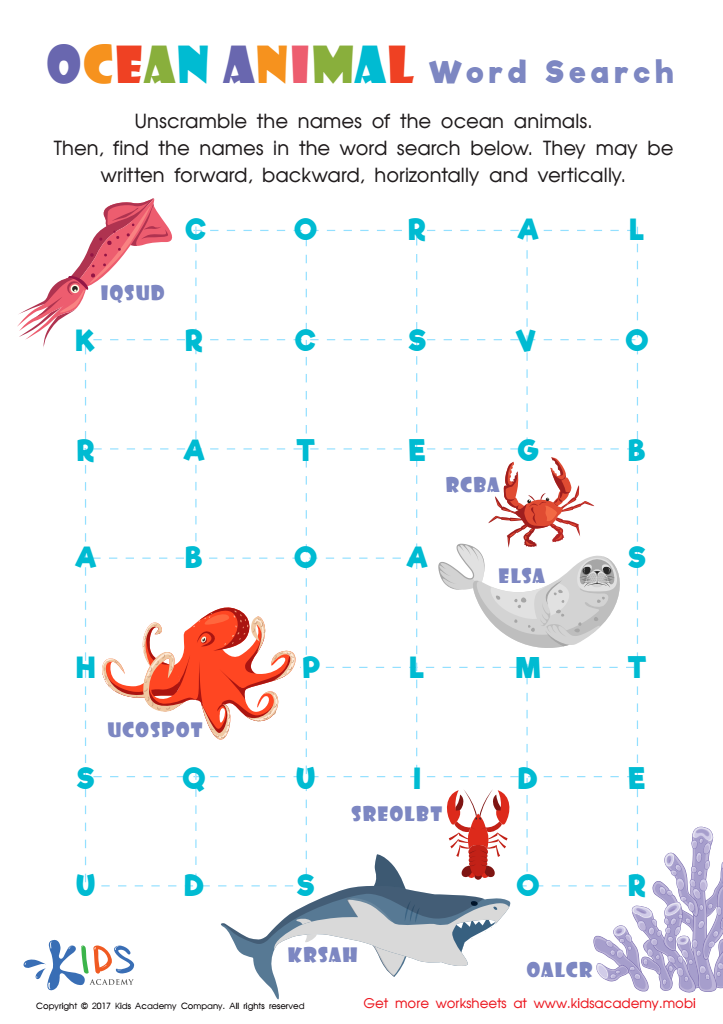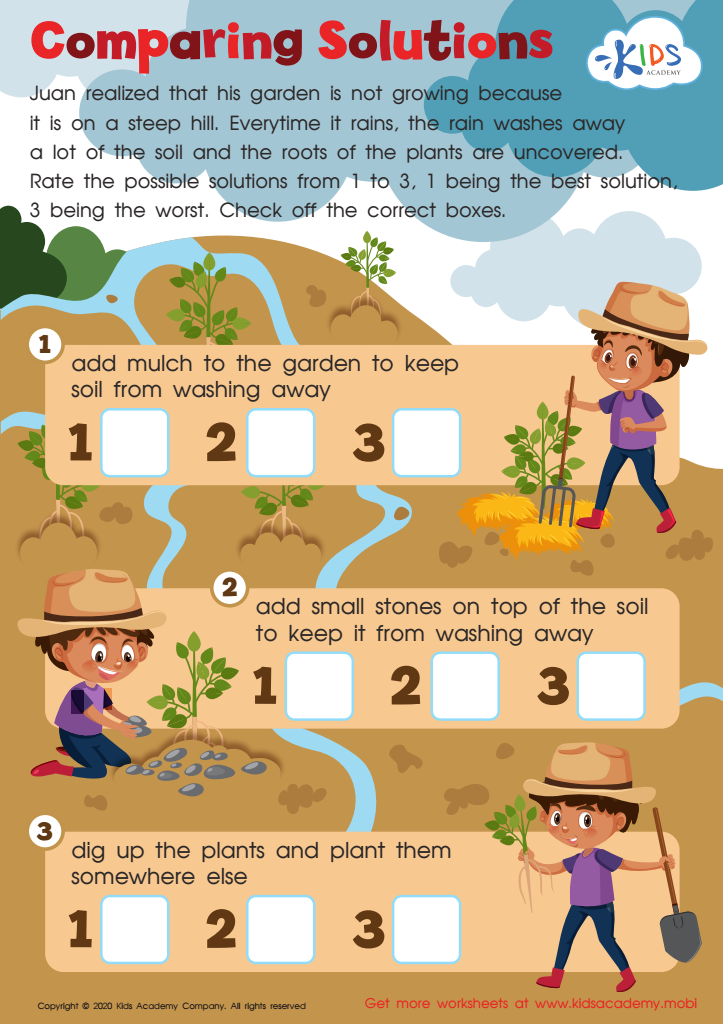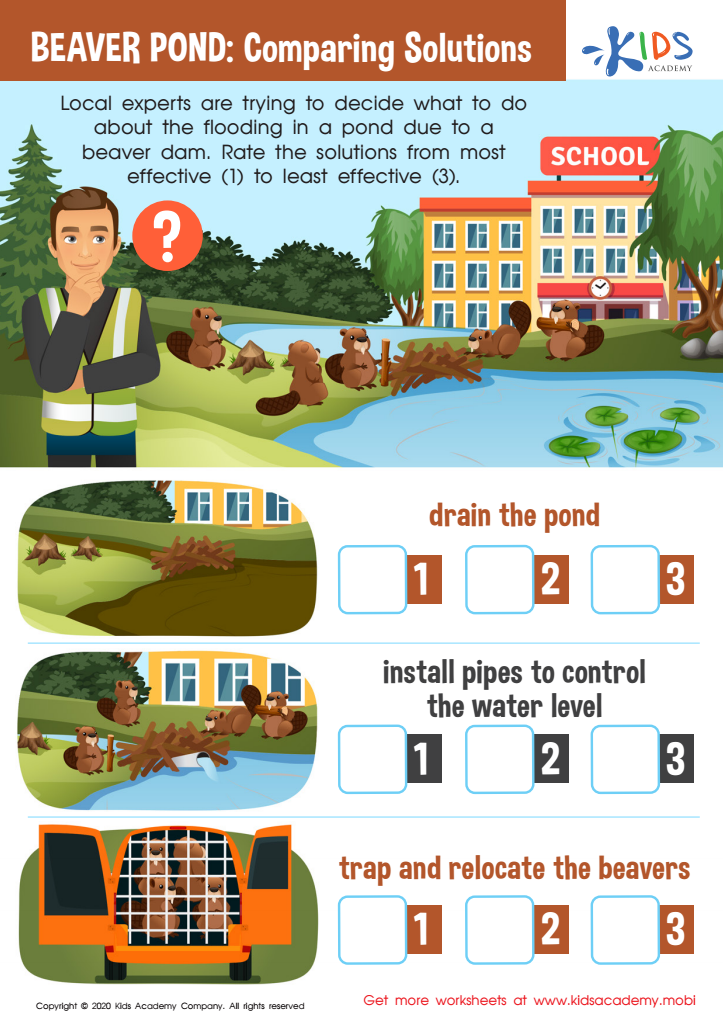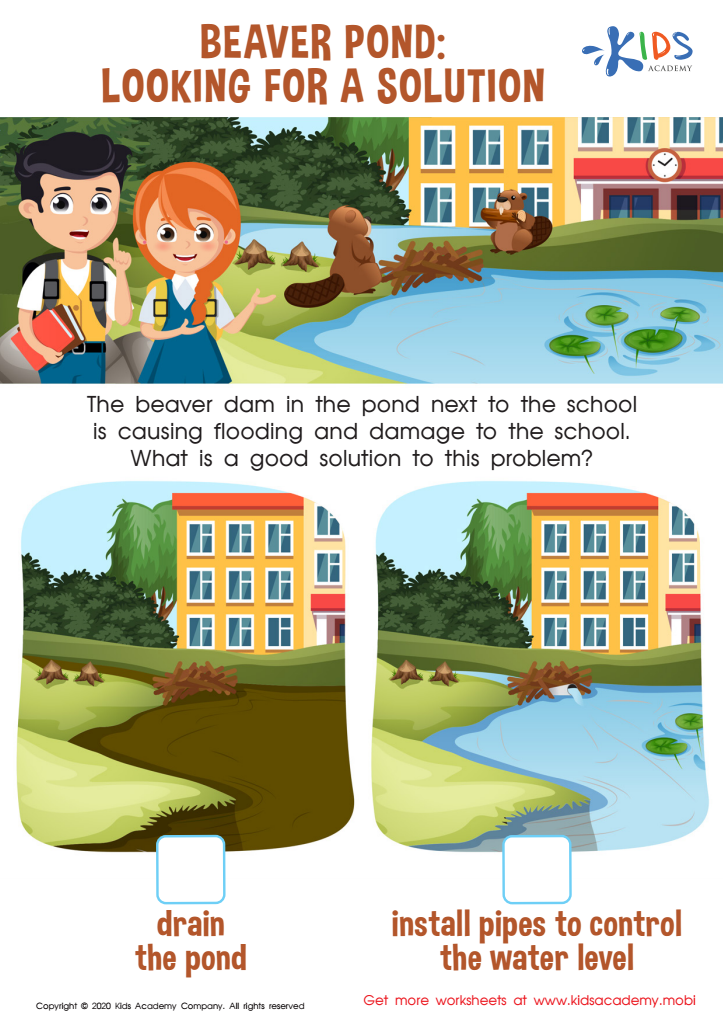Problem-Solving Skills Life Science Worksheets for Ages 4-9
4 filtered results
-
From - To
Discover engaging Problem-Solving Skills Life Science Worksheets designed for young learners ages 4-9! Our specially crafted materials encourage critical thinking and foster a love for science, helping children explore the wonders of the natural world. Each worksheet blends topics such as animal habitats, ecosystems, and plant life while promoting essential problem-solving techniques. Perfect for both classroom and home use, these activities enhance cognitive skills and ignite curiosity. Empower your child with the ability to analyze, hypothesize, and draw conclusions through fun, interactive learning experiences. Unlock the joy of discovery and nurture their analytical abilities with these delightful worksheets!


Ocean Animals Word Search Printable


Comparing Solutions Worksheet


Beaver Pond: Comparing Solutions Worksheet


Beaver Pond: Looking for a Solution Worksheet
Problem-solving skills are essential for children, especially in the early age range of 4-9, as they lay the foundation for cognitive development and future learning. In Life Science, these skills enable young learners to explore and understand natural phenomena, fostering curiosity about the world around them.
When parents and teachers emphasize problem-solving in Life Science, they encourage critical thinking and creativity. Children learn to ask questions, make observations, and develop hypotheses. This hands-on, inquiry-based approach cultivates a sense of agency, allowing them to become active participants in their learning. By engaging in problem-solving activities, children can connect scientific concepts to real-life situations, making their education relevant and meaningful.
Moreover, these skills support emotional growth by teaching persistence and resilience. When children face challenges in their experiments or observations, they learn the importance of trial and error, which is vital for developing a growth mindset.
Involving children in Life Science problem-solving not only enhances their scientific literacy but also nurtures their ability to collaborate with peers, communicate thoughts effectively, and apply knowledge in various contexts. For teachers and parents, fostering these skills is key to preparing children for a complex world where adaptation and innovative thinking are paramount.
 Assign to My Students
Assign to My Students







.jpg)








